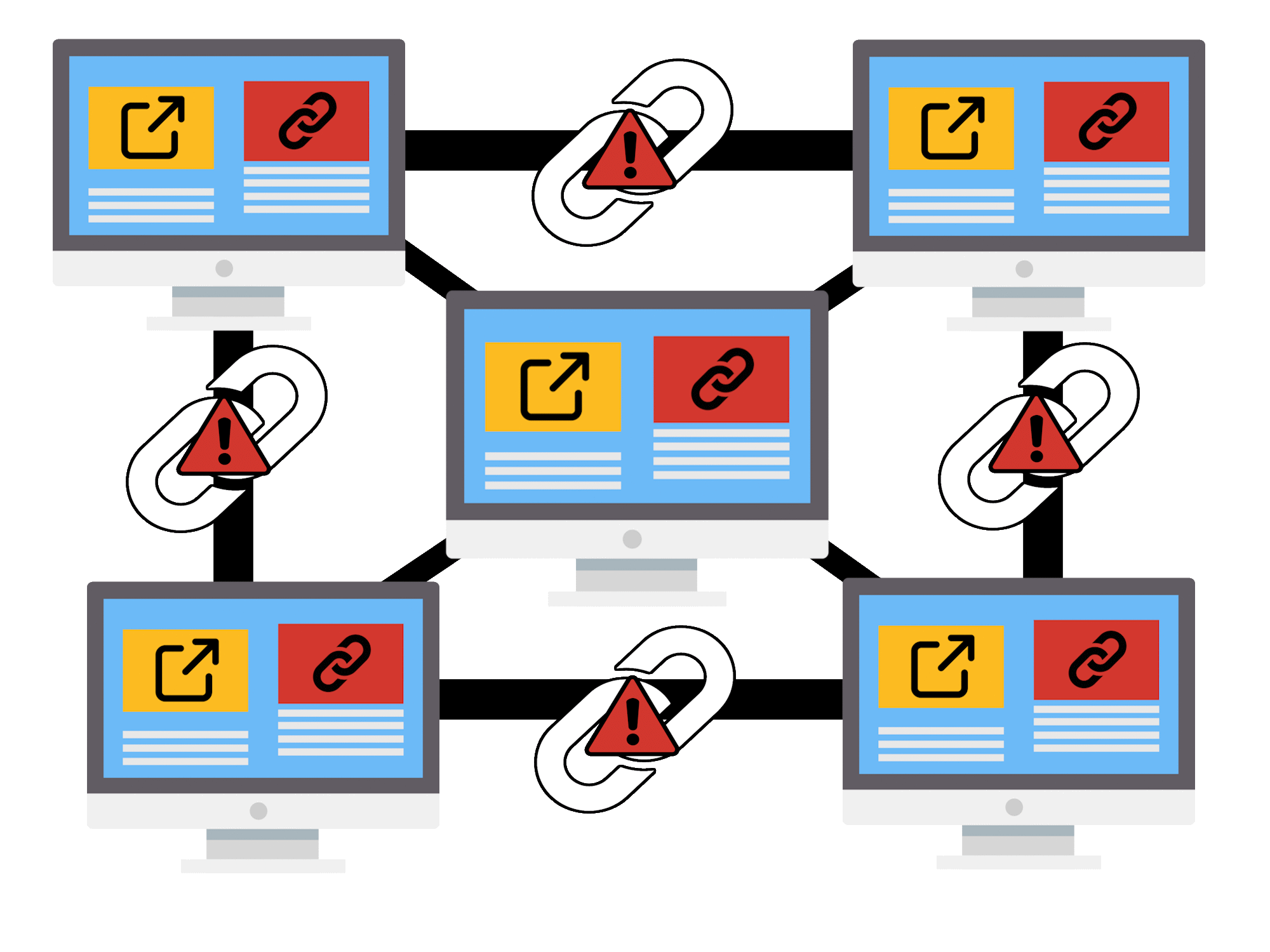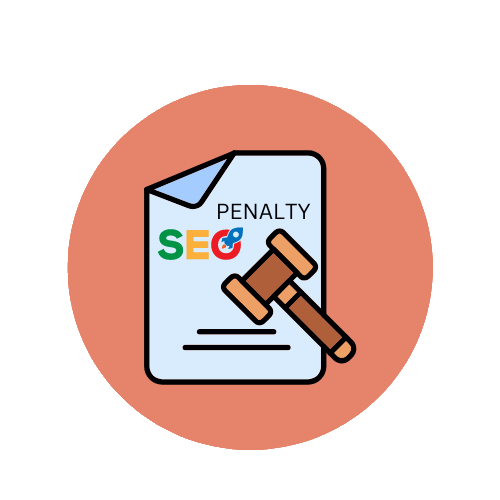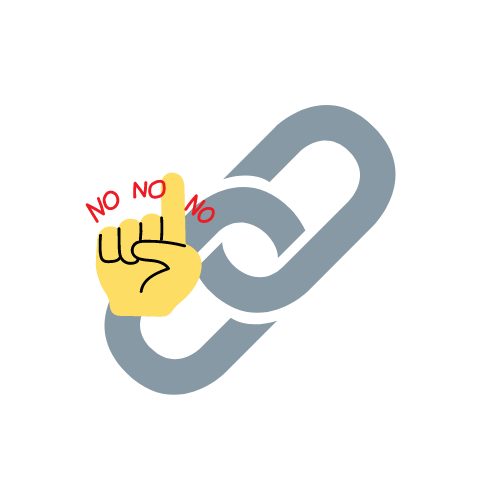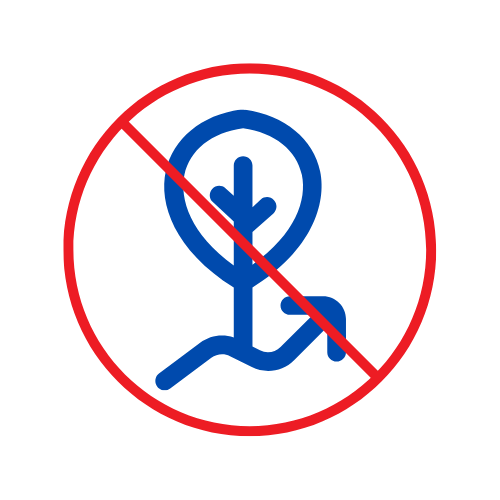
Mass page backlinks focus on quantity rather than quality. They involve acquiring a large number of backlinks from various websites, often without considering their relevance or credibility. This approach may seem tempting, as more backlinks can appear to boost a website’s authority. However, the reality is quite different.


Negative backlinks are typically low in quality. They often come from websites with little authority, spammy content, or unrelated topics. Search engines like Google prioritize high-quality backlinks, and having a bulk of low-quality backlinks can raise red flags, potentially harming your website’s SEO performance.
Search engines continuously refine their algorithms to combat spammy practices. When search engines detect negative backlinks or other manipulative tactics, they may impose penalties on the website. These penalties can lead to a drop in search engine rankings or even removal from search results altogether.


Backlinks are most valuable when they come from relevant sources. Mass page backlinks often lack relevance, as they are obtained in bulk without considering the context of the linking websites. This lack of relevance can diminish the SEO benefits and undermine the purpose of backlinks.
Mass page backlinks can result in a poor user experience. When users encounter irrelevant or spammy backlinks, they may lose trust in the website and quickly leave. This increases the website’s bounce rate and reduces engagement, which can negatively impact its overall SEO performance.


Search engines strive to provide the best user experience by prioritizing websites with high-quality and relevant content. Mass page backlinks go against this principle, and search engines may penalize websites associated with such practices. As a result, the website’s search engine rankings and visibility can suffer.
Building a positive reputation and establishing trust with users is crucial for any website. Mass page backlinks can harm a website’s reputation by associating it with spammy or low-quality sources. This damage to reputation can make it challenging to build trust with both users and search engines.


Once mass backlinks are established, removing or disavowing them can be a complex and time-consuming process. It requires identifying each negative backlink and reaching out to website owners to request removal. If unsuccessful, the disavowal process involves informing search engines to ignore those backlinks, which can take time to reflect in SEO rankings.
Mass page backlinks may attract low-quality or irrelevant traffic to a website. This traffic is unlikely to convert into meaningful actions such as purchases, sign-ups, or engagement. Consequently, the website’s organic traffic and conversion rates may suffer, affecting its overall success.


Mass page backlinks or negative backlinks are considered spammy link-building practices. Search engines like Google have sophisticated algorithms that detect and penalize such practices. Engaging in spammy tactics not only undermines a website’s SEO efforts but also puts it at risk of long-term damage to its online presence.
A website’s brand image and online presence are vital for attracting and retaining customers. Bulk backlinks can negatively impact these aspects by associating the brand with spammy or irrelevant content. This can erode trust and credibility, leading to a decline in brand reputation.


It’s essential to monitor the quality and relevance of your backlink profile. Regularly review and evaluate the sources of your backlinks. If you identify any negative backlinks, take appropriate action to mitigate their impact, such as requesting removal or disavowing them.
Mass links might appear enticing for quick SEO gains, but the risks far outweigh the benefits. It’s crucial to prioritize quality over quantity, focusing on building strong and relevant backlinks. By adhering to ethical SEO practices and creating valuable content, websites can improve their rankings, enhance user experience, and achieve long-term success in the digital landscape.
Remember, SEO is a marathon, not a sprint, and sustainable growth comes from genuine efforts, there are no shortcuts in backlink indexing.
Mass page backlinks, also known as negative backlinks, focus on quantity rather than quality. They involve acquiring a large number of backlinks from various websites without considering their relevance or credibility.
Low-quality backlinks, often from websites with little authority or spammy content, can raise red flags for search engines. This can harm a website’s SEO performance and potentially lead to penalties.
Search engines may impose penalties on websites with negative backlinks or other manipulative tactics. These penalties can lead to a drop in search engine rankings or even removal from search results.
Mass page backlinks can associate a website with spammy or low-quality sources, harming its reputation and making it challenging to build trust with users and search engines.
Removing or disavowing mass backlinks can be complex and time-consuming. It requires identifying each negative backlink, requesting its removal, or informing search engines to ignore them.
Regularly review and evaluate the sources of your backlinks. If negative backlinks are identified, take actions like requesting removal or disavowing them.